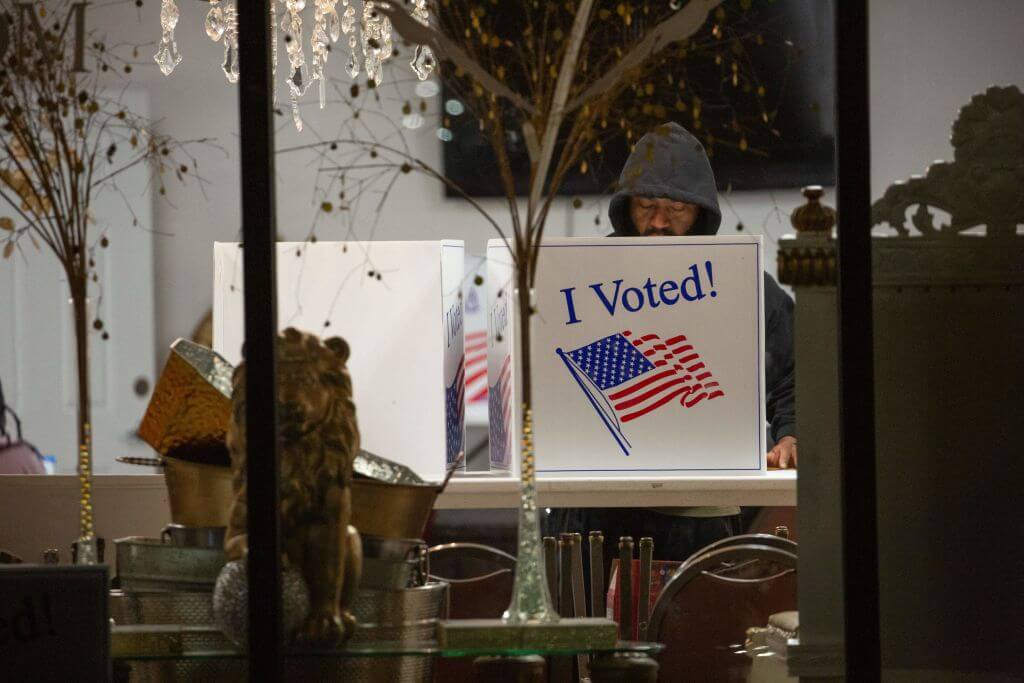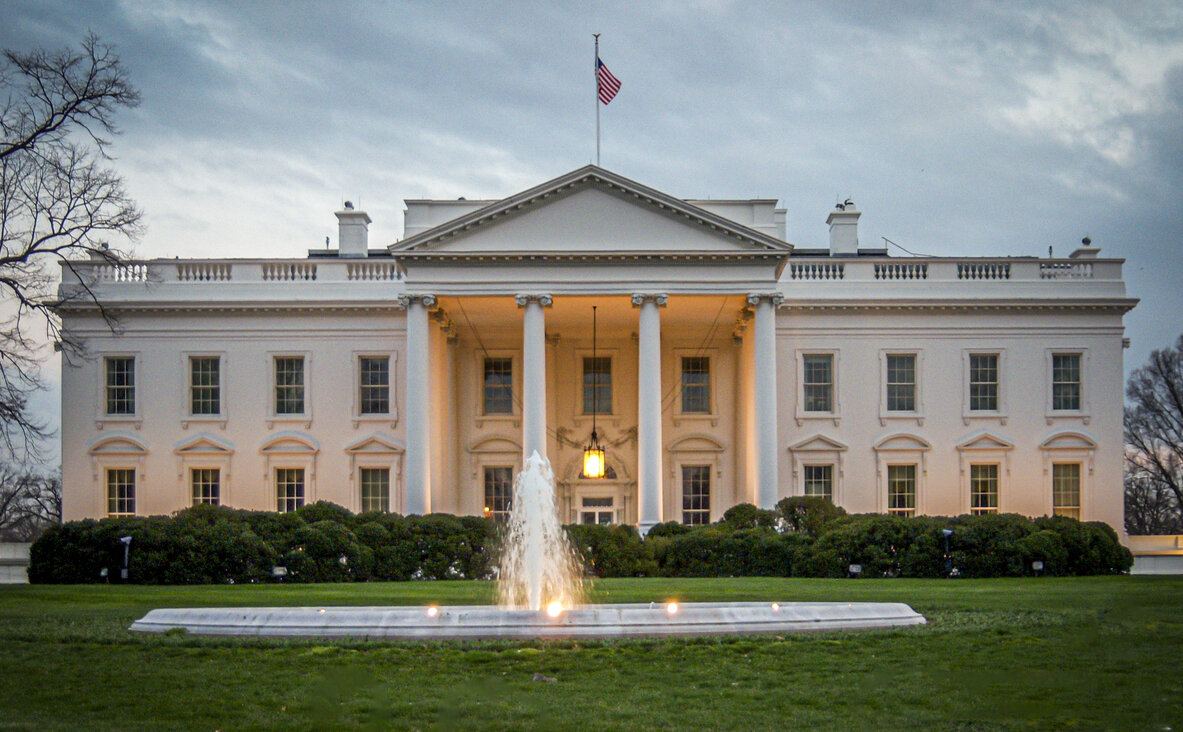Debate over a swing state’s presidential primary date hinges on Passover
A Democratic-supported bill to move up the primary to April 2 due to Passover faces hurdle in Pennsylvania’s GOP-controlled upper chamber

A Pennsylvania voter casts his ballot on Nov. 8, 2022. Photo by Rebecca Droke/AFP via Getty Images
A dispute over a presidential primary date that conflicts with a Jewish holiday has led to a showdown between Republicans and Democrats in the key electoral battleground of Pennsylvania.
Its House of Representatives voted Thursday to change the primary date from late April to the first Tuesday of that month because the original date clashed with the first day of Passover. Pennsylvania has an estimated 300,000 Jewish adults — comprising 3% of the electorate — and voting is prohibited for observant Jews during the first two days of the eight-day holiday.
The vote was very close — all 100 Republican members of the majority Democratic House opposed the bill — and it is likely to face a challenge in the 50-member Senate where the GOP has a six seat majority.
Dueling dates
The bill was initially introduced in January to permanently move up the primary date to early April — the same day voters in New York, Delaware, Rhode Island and Wisconsin head to the polls — to give Pennsylvania voters more clout in the presidential election. Recent polls showed President Joe Biden and former President Donald Trump locked in a dead heat for the state’s 19 electoral votes.
State Rep. Jared Solomon, who is Jewish and a co-sponsor of the bill, said the legislation would kill two birds at once. “Jewish Pennsylvanians shouldn’t have to choose between celebrating Passover and going to the polls,” he said. At the same time, Solomon added, the bill “will provide Pennsylvania the political weight it deserves by giving us a voice earlier in the process.”
New York, Delaware and Rhode Island have already moved up the date due to Passover.
Republicans objected to the proposed date, arguing that changes on such short notice will create chaos for county election administrators. They also suggested that Jewish voters can opt to vote early by mail.
“With all the different religions that we all have — Christianity, Jewish, Hindu, Buddhist — there’s so many different religions,” State Rep. Brad Roae, a Republican from Erie County, said earlier this week. “Probably almost every day is a holiday for somebody.”
Instead, the Republican-controlled Senate passed a bill moving the date to March 19, the same day as Ohio, Florida, Illinois, Kansas and Arizona, to address both issues — the holiday and the advantage of an earlier primary.
An overwhelming majority of Jewish adults in the state — 67% — identify as Democrats, according to a Jewish Electorate Institute survey. Only 26% are registered or leaning Republican.
Finger-pointing
The Senate bill was defeated in the House 177-26 because it included amendments to expand voter ID requirements and other mail ballot rule changes.
The session was described as “contentious” by The Philadelphia Inquirer, with “singing, yelling, and arguments over the events of Jan. 6.”
The Democratic bill was approved along party lines and is headed to the upper chamber for consideration when it returns to session on Oct. 16. “We are one step closer to Pennsylvania becoming a heavyweight in the political arena,” Solomon said Thursday night. “And as someone whose faith is incredibly important to me and my family, I’m grateful that I will no longer have to choose between my civic duty and my religious obligations.”
Senate Majority Leader Joe Pittman did not say whether Republican leadership will bring up the measure for approval later this month. “We have tried to advance a new primary date out of respect for the Jewish holiday,” he said in a statement. “Those efforts have clearly not been successful and the window to make any change is rapidly closing given the House actions this week.”
An official in the administration of Gov. Josh Shapiro, who is Jewish, said the governor has consistently supported the idea of rescheduling the date to avoid conflicts with Passover. The official — who requested anonymity to discuss internal communications — said that Shapiro has been urging the legislature for months to act promptly to make sure there is sufficient time for counties to adequately prepare for changes.
















